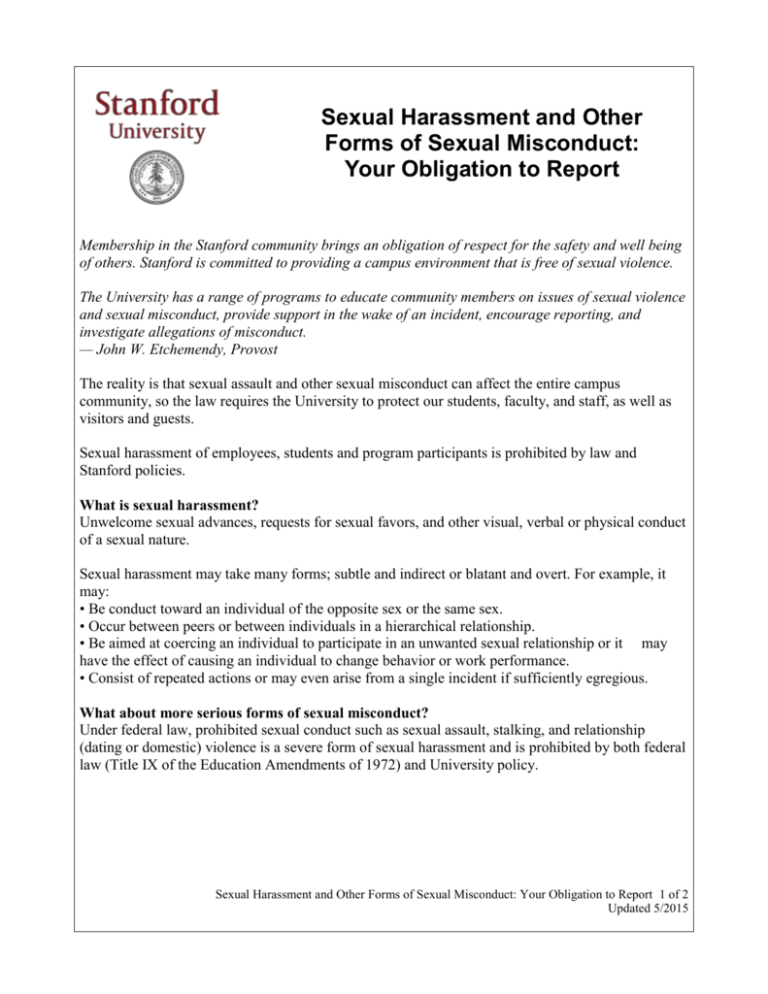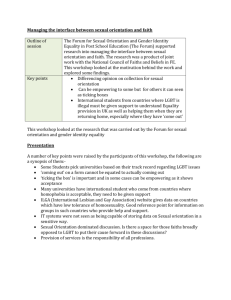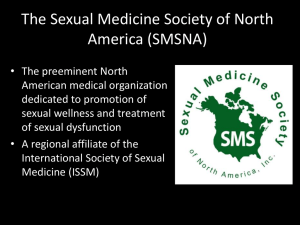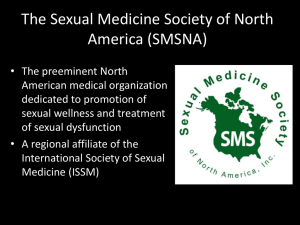
Sexual Harassment and Other
Forms of Sexual Misconduct:
Your Obligation to Report
Membership in the Stanford community brings an obligation of respect for the safety and well being
of others. Stanford is committed to providing a campus environment that is free of sexual violence.
The University has a range of programs to educate community members on issues of sexual violence
and sexual misconduct, provide support in the wake of an incident, encourage reporting, and
investigate allegations of misconduct.
— John W. Etchemendy, Provost
The reality is that sexual assault and other sexual misconduct can affect the entire campus
community, so the law requires the University to protect our students, faculty, and staff, as well as
visitors and guests.
Sexual harassment of employees, students and program participants is prohibited by law and
Stanford policies.
What is sexual harassment?
Unwelcome sexual advances, requests for sexual favors, and other visual, verbal or physical conduct
of a sexual nature.
Sexual harassment may take many forms; subtle and indirect or blatant and overt. For example, it
may:
• Be conduct toward an individual of the opposite sex or the same sex.
• Occur between peers or between individuals in a hierarchical relationship.
• Be aimed at coercing an individual to participate in an unwanted sexual relationship or it may
have the effect of causing an individual to change behavior or work performance.
• Consist of repeated actions or may even arise from a single incident if sufficiently egregious.
What about more serious forms of sexual misconduct?
Under federal law, prohibited sexual conduct such as sexual assault, stalking, and relationship
(dating or domestic) violence is a severe form of sexual harassment and is prohibited by both federal
law (Title IX of the Education Amendments of 1972) and University policy.
Sexual Harassment and Other Forms of Sexual Misconduct: Your Obligation to Report 1 of 2
Updated 5/2015
Sexual Harassment and Other
Forms of Sexual Misconduct:
Your Obligation to Report
The University is obliged to respond promptly to reports of ALL forms of sexual harassment,
including sexual assault, within the Stanford community.
If you receive information or observe that a program participant may have experienced sexual
harassment, sexual assault or other type of sexual misconduct, doing nothing is always the wrong
response.
Immediately contact your program management who must notify Stanford’s:
Title IX Office:
650-497-4955
titleix@stanford.edu
OR
Sexual Harassment Policy Office:
650-724-2120
harass@stanford.edu
For any emergency, dial 9-1-1 to reach the Stanford University Department of Public Safety
Sexual Harassment and Other Forms of Sexual Misconduct: Your Obligation to Report 2 of 2









